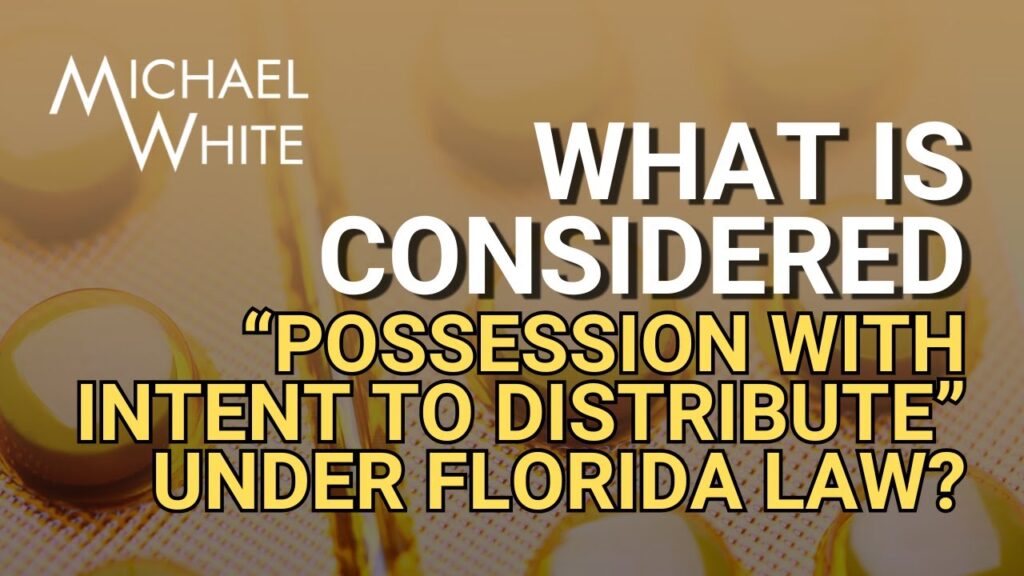💊 What Is Considered “Possession With Intent to Distribute” Under Florida Law?
If you’ve been charged with possession with intent to distribute in Florida, you’re likely wondering what exactly the State must prove. As a Fort Lauderdale criminal defense attorney, I get this question often—and the answer depends on the specific facts of your case.
🧪 How Does Florida Prove Intent to Distribute?
Florida law differentiates simple possession from intent to distribute based on the circumstances of your arrest.
You may face an intent to distribute charge if:
- Drugs are packaged into multiple baggies
- Large amounts of cash are found nearby
- Scales or measuring devices are discovered
- You make statements to police about selling drugs
📦 Example: One bag of cannabis = simple possession. Ten smaller baggies = possible intent to distribute.
Facing drug charges in south florida?
⚖️ What Are the Penalties?
Penalties depend on the type and amount of drug involved.
🚫 Cannabis
- More than 20 grams with intent to distribute = felony
- Penalty: Up to 5 years in prison
🚫 Cocaine, Heroin, Methamphetamine
- Any amount with intent to distribute = felony
- Penalties are harsher and may include mandatory minimum sentences
📊 Florida Drug Stat: According to FDLE data, more than 30,000 drug-related felony arrests were made statewide in 2023—including many for distribution.
🛡️ Charged With Intent to Distribute? Call a Fort Lauderdale Defense Lawyer
Drug distribution charges carry serious consequences—but they can be fought. An experienced attorney may be able to:
- Challenge unlawful search and seizure
- Suppress improper statements
- Dispute the intent-to-sell elements
- Seek charge reductions or dismissal
📞 Call Michael White, P.A. at (954) 270-0769 or contact us online for a free consultation. We defend clients across Fort Lauderdale and South Florida.
💬 Frequently Asked Questions: Possession With Intent to Distribute in Florida
Q1: What is considered possession with intent to distribute in Florida?
A: Possession with intent to distribute involves being caught with drugs along with evidence that suggests you planned to sell or deliver them—such as packaging, scales, or large amounts of cash.
Q2: How is intent to distribute proven by prosecutors?
A: Prosecutors use circumstantial evidence like how the drugs were packaged, possession of measuring tools, or statements made during arrest to argue intent to distribute.
Q3: Is possession with intent to distribute a felony in Florida?
A: Yes. Whether it’s cannabis, cocaine, or methamphetamine, possession with intent to distribute is charged as a felony with the potential for years in prison.
Q4: Can a possession with intent charge be reduced or dismissed?
A: Yes. A criminal defense attorney can challenge the search, suppress statements, or argue the evidence doesn’t support intent to sell—leading to a lesser charge or dismissal.
Q5: What should I do if I’m charged with intent to distribute in Florida?
A: Contact a criminal defense lawyer immediately. Early intervention can preserve your rights, challenge weak evidence, and improve your chances of a favorable outcome.




